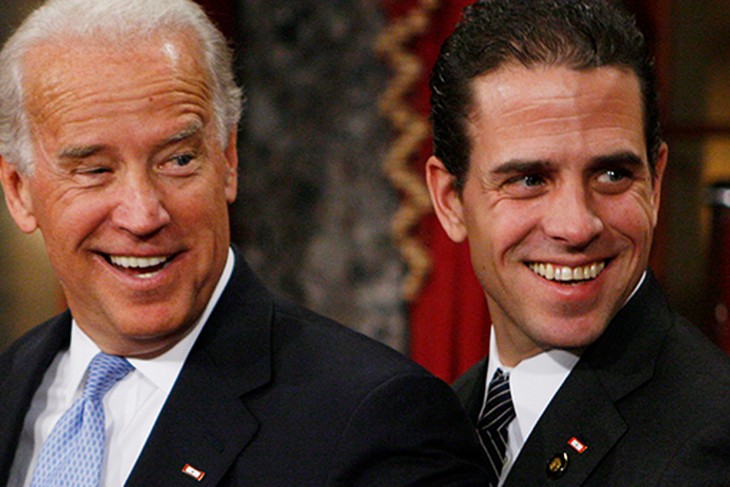CNN Legal Analyst Admits Biden Team Now Has 'Complicated Ethics Problem'
As I reported yesterday, the Biden team really stepped in it when they tried to construct a scheme to deal with the ethical questions raised by Hunter Biden’s art being bought by anonymous buyers.
Jen Psaki admitted the White House involvement in the construction of the scheme but tried out some Orwellian spin, arguing that denying the public knowledge of who those buyers were was somehow making everything more transparent.
That even prompted a response from CNN and Obama ethics expert Walter Shaub. Shaub told the folks on CNN he wasn’t buying that argument, that the White House’s deal to help Hunter sell art was a “perfect mechanism for funneling bribes to [the] president” in an industry that’s “notorious for money laundering.”
But now, even CNN legal analyst Elie Honig thinks the White House has stepped in it by inserting itself into this equation. Previously, the Biden administration could say whatever Hunter did was up to him. Now, they concocted the deal and have endorsed it. That’s not only put them on the hook for anything that comes from it, but it immediately raises an ethical conflict because of their involvement.
“It looks terrible for the White House. And they’ve got a complicated ethics problem on their hands now,” Honig said.
There’s nothing that prevents a buyer from telling the White House or Hunter Biden that they bought the art. What stops anyone from saying, “Hey, I’m buying the art. Now I expect that meeting with your dad that we talked about.” We’ve seen exactly that sort of situation in the past, where Hunter set up meeting the ‘big guy’ Joe for his business associates. Why would now be any different?
We should also note that Georges Berges, the art dealer that the White House farmed out their ethics to keep the names, has an interesting history, according to the New York Post.
Berges, 44, regularly features works by Chinese artists and told a Chinese network that he was keen to open other art galleries in Beijing and Shanghai in 2015. “The questions that I always had was how’s China changing the world in terms of art and culture,” Berges told the China Daily in 2014.
Berges was accused of defrauding an investor in a 2016 federal lawsuit. Ingrid Arneberg claims she invested $500,000 in Berges’ gallery for a promised expansion, but instead he used the cash to pay off old debts. Berges later countersued Arneberg, and the case was settled in 2018.
In 1998, he was charged with assault with a deadly weapon and making “terrorist threats,” which were dismissed. He pled “no contest” to the assault and received 36 months probation and served 90 days in jail, according to Santa Cruz Superior Court documents — the only information publicly available about the case.
So sure, no problems there.
White House Deputy Press Secretary Andrew Bates even tried to argue that the White House stepping into this ethical mess was more evidence of how ethical they truly were. “The president has established the highest ethical standards of any administration in American history, and his family’s commitment to rigorous processes like this is a prime example,” Bates told the Washington Post.
In a pig’s eye.





Post a Comment